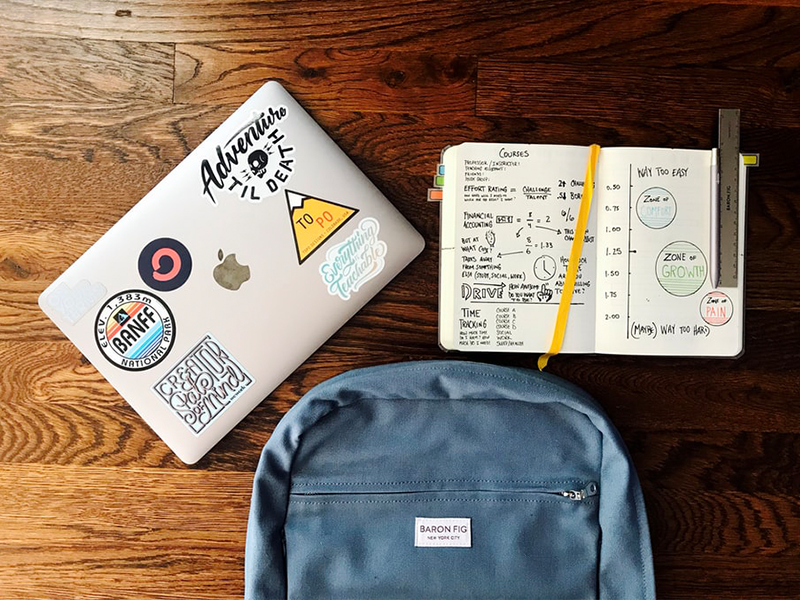
A Guide to Improving Your Study Skills
Time and location
Your study area – whether it’s at home, in a library, at school or at a friend’s house – needs to be organised and optimised for studying effectively.

- Have plenty of natural light and fresh air
- Focus entirely on work for 25 minutes, then take a 5-minute break to walk around, grab a snack and refocus
- Keep all the books and resources you need close to hand
- Have your desk organised and free from clutter
- No electronic devices as distractions
The approach
- For each session, follow a checklist that clearly shows, in order of priority, what you have to do or plan to achieve.
- On your checklist, suggest a time frame for each task but do not become too rigid or fixated on this allotted time, because tasks might take longer than anticipated.
- As successful athletes do, focus on your technique while being aware of the time allocated to each task.
- Cross off tasks as you finish them.
- If you can’t think of a way to start a task within five to ten minutes, seek help from your friends, parents or teachers.
- Focus on one task at a time and, if possible, finish this before moving to the next task on the list. Remember that larger assignments might need to be completed over several sessions, so try to work up to a logical break point before moving to another task.
For written exams

- Prior to the exam, get together with a group of your subject peers and discuss what you believe will be on the paper. Particularly focus on the more difficult sections and work together to improve your ability and technique with this section of work. This will build your confidence immensely.
- Divide your study time: our rule of thumb is to spend one-third of your time on content, another third of your time on technique and skills and the other third of your time on higher order problem-solving.
- During perusal, scan the format of the paper (if possible, ask your teacher what the format will be before the exam – number of questions, time allocation and so on).
- Your best work happens in the first 30 minutes of the exam – don’t start on the easiest questions.
- Start on a medium-difficulty question to build your confidence, then try a harder unit.
- Alternate medium to hard questions, and save the easiest questions until the end.
- Spend the last five to ten minutes checking your answers: reread the questions closely, and make sure you have been as accurate and detailed as possible to fully address the questions.
For assignments
- The day you receive the assignment should be the day you start the assignment.
- Assessment that needs to be completed over a long period of time should be broken down into small sections to allow you to complete each section within a manageable time frame.
- Aim to complete the assignment well before the due date, as the unexpected always seems to occur. This will leave you plenty of time to revise your work if necessary.
Remember: Exactly copying someone else’s idea is called plagiarism, but to obtain many ideas from lots of people is called effective learning. —Mighty Minds
General study
- Do not just concentrate on assignments and homework; read to broaden your knowledge.
- In your plan, allow time for revision of class work (for each subject).
- Set up a systematic note-taking style that identifies the topic being addressed, the division of the topic into relevant sections, identification of key terms, concepts, formulas, processes and skills needed, as well as any questions/issues raised that need addressing.
- Regularly review your summary notes, adding and deleting where necessary.
- In all instances, have a clear understanding of what is required in each task.
- If questions arise, make a note of them and seek help as soon as possible.
- Focus on applying an efficient technique to any given task.
- If studying with friends, have a clear focus on what will be achieved before you commence.
- Remember, if learning is fun, you will do it more often. This is why group work is ideal.
Study online
We have had success with students who have taken on the responsibility of creating online forums with a specific subject focus. Those invited to the group are expected to contribute appropriate material (that is questions, examples) and review each other’s techniques and procedures. Your teachers are not available 24/7, but your peers tend to be around during the night and the early hours of the morning, so we recommend using online forums and social media to communicate with your peers about the exams, assignments and other classwork.
“Not understanding basic literacy and numeracy skills erodes confidence.
Without confidence, success is seldom achieved." —Mighty Minds
